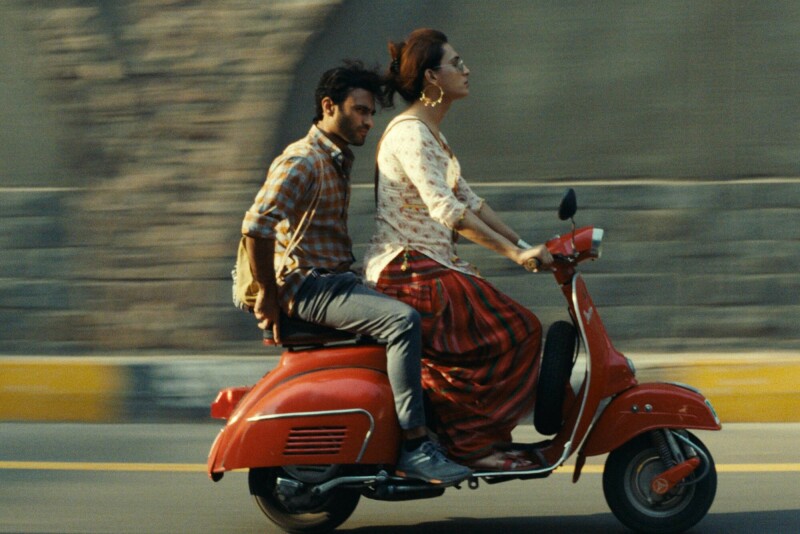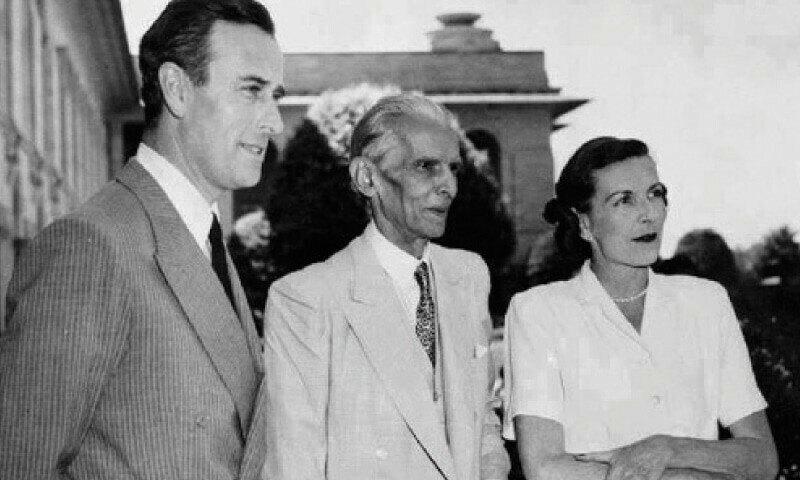Manto lives: In Sarmad Khoosat's darkly perfect biopic, a great writer gets his due
Manto has gone from being quietly revered to outright celebrated in a just-released biopic directed by Sarmad Khoosat.
But the film doesn’t paint him a saint.
In fact, Manto – considered a national hero by many – has come across as a decidedly "bad man" to some.
This kind of polarised response to the film Manto is no different from reactions to his writings; Manto had his share of both literary admirers and political critics. The polarity finds itself expressed in the film's fire and ice metaphor.
The film
 |
| Sarmad Khoosat as Manto reads 'Khol Do' at the Pak Tea House, Lahore — Publicity photo |
Manto opens in 1951 Lahore – Manto (Sarmad Khoosat) returns home from a psychiatric hospital to his wife Safia (Sania Saeed) and three girls, and gets back to his business of writing and drinking.
The narrative gains traction when the government of Pakistan, via Qudrutullah Shahab (Adnan Jaffer), gives Manto a share in an ice factory. (In the film, this is seen after his first release from the psychiatric hospital, but biographical accounts suggest this occurred when he applied for a printing press license). Manto, on the other hand, maintained that fire raged in his veins. He was a writer, not a seller of ice. And he soon shred his factory license.
Having turned down his share in the ice factory, he writes with a fury, driven by economic need and his mad drive to express himself.
The film then selects events from his life – his association with Noorjehan, for example, the 'Lihaf'/'Thanda Gosht' trial that served as the backdrop of the writing of 'Peshawar Se Lahore Tak', his time at the psychiatric institution that as the inspiration of 'Toba Tek Singh' – and goes on to chart Manto's downward spiral as Pakistan changed with curfews and censorship being imposed in the 1950s.
Sarmad punctuates the chronology of Manto’s latter life with a montage of his stories. Telling stories within stories onscreen is not a new thing, and it could have gone badly wrong – but somehow Sarmad makes it work.
But far from just providing a chronology of his life and work, Manto's true value lies in its dramatisation of the great writer's stories, in the hope that they will be read by people who never previously thought to pick up his books.
This, of course, exploits the true power of cinema - it can reach more people than a book ever could.
And so Sarmad punctuates the chronology of Manto’s latter life with a montage of his stories. At times, we're shown Manto scribbling away, and then we slip imperceptibly into the story as he writes, each told in a different style, with different actors playing key roles – the variation a reflection of Manto’s diverse body of work, from short stories to newspaper columns to film scripts.
Telling stories within stories onscreen is not a new thing, and it could have gone badly wrong -- but somehow Sarmad makes it work.
In this manner, when Irfan Khoosat agonises over his missing daughter in a depiction of Manto's story 'Khol Do', or when Savera Nadeem is snatched of her livelihood in 'License', or when Nadia Afghan endures the chagrin of being spurned by a customer in 'Hatak' - our interest in the writer's body of work is piqued, we want to know more.
The inherent burden of making a biopic
 |
| Playing Manto is not an easy task for Sarmad - generations will now see the writer as portrayed by him — Publicity photo |
No matter how one resists it – you have to admit, after watching an engrossing film about a famous persona, you kind of start to buy the narrative you're sold.
This puts incredible responsibility on Sarmad’s shoulders, for generations will now see Manto as he’s portrayed the man.
He was handed this responsibility by the film’s writer Shahid Nadeem. Says Sania Saeed about Sarmad's selection as Manto: “Being a good actor was the least of the requirements. It had to be someone who understood Manto, not just as a writer, which was equally important, but as a person."
Archives of Manto's work as an actor and radio artist were inaccessible, so there was no documentation available of his body language and speech. Sarmad's individual perception of him became the primary source of his performance.
Sarmad pieced together his performance of Manto through his own interpretation of his work, but getting access to all the material he required was tough.
Archives of Manto's work as an actor and radio artist were inaccessible, so there was no documentation available of his body language and manner of speaking. When Sarmad sought other avenues to get close to the writer, he found that Manto's old room at the Laskhmi Mansion is now occupied by his granddaughter and has been painted pink. It's true -- Barbie curtains now flank the window he sat near to write. His daughters have contrasting memories of him. So Sarmad's individual perception of him became the primary source of his performance.
Amazingly enough, this worked also.
 |
| Sarmad does justice to the multiple personalities of Manto in the film — Publicity photo |
Sarmad captures the essence of the warring multitudes in Manto – his wild, uncontrolled lust for alcohol wrests for supremacy over his genuine affection for his daughters, and wins in a scene that teems with pathos. On the first day of curfew, he rushes to submit a story for a measly payment, and squanders most of it on a bottle of booze. Nighat, the eldest daughter, spent another night without much-needed medicine.
We get a sense of how the characters he created live on in his mind and threaten to loosen his grasp on reality. Manto is rendered several shades darker by the haunting presence of Nimra Bucha as his shadow/ alterego/‘humzaad’ – her appearances, though numbered, give goose bumps to the viewer. And in the final scene, Sarmad has us forget to breathe.
Sania, in her role, is the perfect complement to this darkness, her unwavering stoicism a foil to Manto’s erratic ups and downs.
Accepting Manto
 |
| Manto, the film, as a tribute to the writer is different because it's made for the masses — Publicity photo |
Manto is a film long overdue.
This is not to say, however, that Manto hasn’t been paid tribute before. Unlike another recently released biopic, Shah, by Adnan Sarwar, which brings to life a little-known sports personality -- Manto takes on a figure who's already famous. Scores of ardent fans have tipped their hat to Manto on stage, and on TV, and in universities and literary festivals.
But a film that is based on Manto’s thoroughly non-commercial stories takes Manto’s message beyond literary circles. (The upcoming Manto TV serial will be an extension of this film.)
It upsets the notion that Manto can only be enjoyed by a niche audience. Sarmad and crew have spent years on this passion project to correct that misconception. Amassing a cast of some of Pakistani TV’s most-loved faces (several of whom hadn’t read Manto, Sarmad said) and including a soundtrack with popular appeal (featuring the likes of Meesha Shafi and Javed Bashir), the film is proof that Manto can be interpreted by anyone, “regardless of IQ, EQ, age bracket.”
And it seems like Manto has penetrated some unlikely ranks.
While talking about the miraculous U-rating given to Manto by the censor board, Sarmad admitted that a lot of the rawness in Manto’s work was sublimated in the film’s aesthetics, but the blatant anti-establishment streak in his writing couldn’t be done away with. Yet the censor board, where army chaps are also represented, had no reservations in releasing the film.
It's almost like Manto's famous words about himself were prophetic. Saadat Hasan died one day in 1955, but Manto will never die.
Correction: An earlier version of this story included a misquote, which has been removed. The error is regretted.












Comments